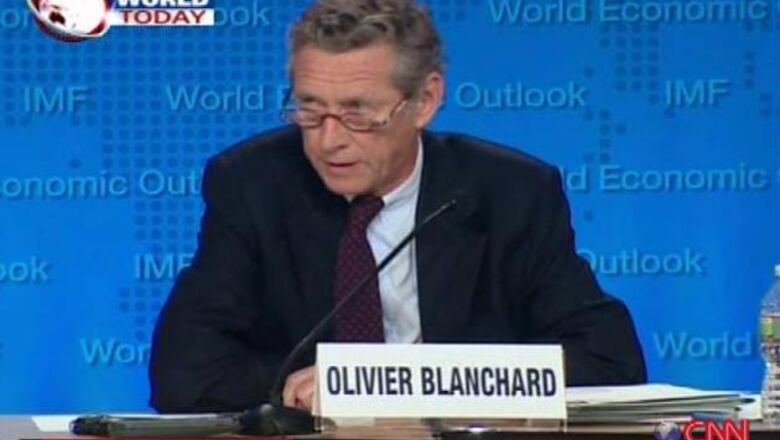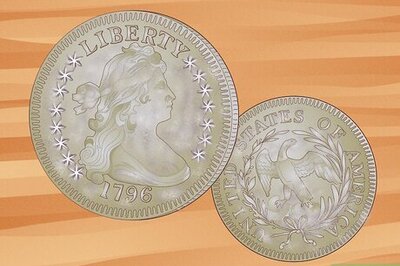
views
Singapore:: The International Monetary Fund (IMF) urged China to lead other Asian countries in a coordinated strengthening of the region's currencies to boost consumer spending and reduce reliance on overseas markets for growth.
Governments in Asia have been reluctant to let currencies rise out of fear their exports would lose competitiveness to regional rivals, the International Monetary Fund said on Wednesday in its quarterly report on the world economy.
At the same time, a surge of foreign capital into the region as investors seek returns higher than in developed countries has made controlling currencies more challenging for those Asian central banks, which keep a tight rein on the foreign exchange markets.
"Resistance to currency appreciation by one economy could discourage others because of competitiveness concerns," the report said. "International coordination could alleviate challenges of this nature."
The IMF, a lender of last resort to nations during financial crises, said exporting countries in Asia would likely follow China if it let its currency, the yuan, rise and sought to rely less on foreign demand for its products.
"To the extent that a stronger Chinese currency eases this process, other ... countries in the region could follow suit, which would facilitate the needed shift toward domestic sources of growth," it said.
Asia becoming less reliant on exports for growth and reducing its vast trade surplus with most advanced economies is seen as one of the adjustments the world economy should make in the wake of last year's recession to ensure more stability in the global economy and markets. Stronger currencies, meanwhile, would make imported goods cheaper and boost local spending as a contributor to economic growth.
China, the world's second-biggest economy, has been under fire for the minimal rise in the yuan since June when it dropped an 18-month old peg to the dollar and said it would allow a more flexible exchange rate. Since then the Chinese currency has risen about 2 percent against the dollar.
Major nations including the US complain that Beijing keeps the yuan undervalued, giving its exporters an unfair price advantage and costing jobs. Last month, Congress voted to allow Washington to penalize governments that manipulate exchange rates, which some analysts said inched China and the US closer to trade war.
The IMF also warned that Asia faces the risk of inflation, asset bubbles, and financial instability if it mishandles the capital pouring into the region.
Asia will continue to lead the global economic recovery this year and next but growth likely slowed in the second half as governments wound down stimulus spending and central banks raised interest rates to dampen inflation pressure, the IMF said.
It expects Asian economies to expand 7.9 percent this year and 6.7 percent next year, led by strong growth in China and India, the world's two most populous nations.
"Industrial production and retail sales have been strong in China and India," the report said. "Robust activity in these countries in turn is helping power growth in the rest of Asia."
The IMF left its forecasts for Chinese economic growth — 10.5 percent in 2010 and 9.7 percent in 2011 — unchanged from July's estimates. Slowing credit growth, measures to cool off the property market and reduced government spending will help trigger next year's slight growth slowdown, the Fund said.
It sees India's gross domestic product growing 9.7 percent this year and 8.4 next.
The fund expects Japan's GDP to grow 2.5 percent this year and 1.8 percent next, the smallest expansion in the region, due to lacklustre domestic demand and a lack of fiscal room to further boost the economy.
Singapore is expected to grow the most in Asia this year at 15 percent.


















Comments
0 comment